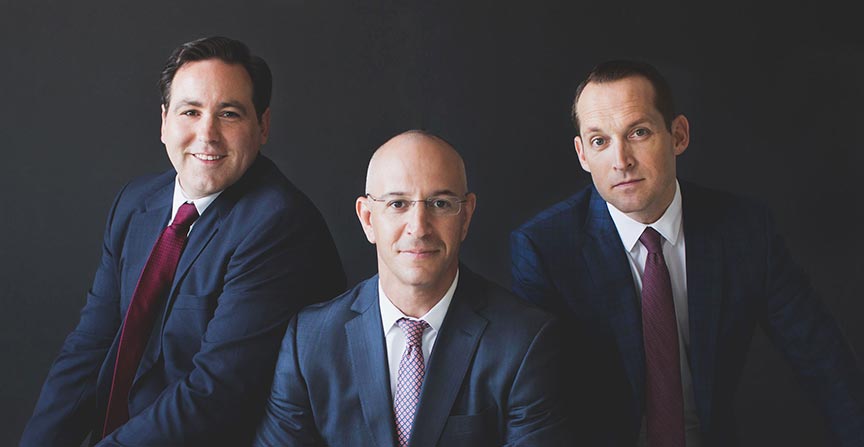What counts as molestation is defined pursuant to ARS 13-1410. In Arizona, a person commits the crime of child molestation if they:
The term “sexual contact,” means the touching, fondling or manipulating of the genitals or anus. Sexual contact in the Arizona child molestation statute does not include the female breast. And does not constitute child molestation, however, touching the female breast would normally be criminalized by a charge of sexual abuse pursuant to ARS 13 1404.
Child molestation charges are classified as a class 2 felony and are a Dangerous Crime Against Children offense (DCAC) pursuant to ARS 13 705.
SIDE NOTE:

Unfortunately, jail time for child molestation charges is very common as the offense is a class 2 felony. While the general sentencing law for felonies (ARS 13-702) would provide a range of between 3 years and 12.5 years in prison for a class 2 felony, the child molestation law specifically states that if you are convicted of that offense, you will be sentenced under ARS 13 705, entitled Dangerous Crimes Against Children (DCAC).
That law says that an adult convicted of child molestation will be subject to a:
The possibility of probation for the crime of child molestation is not possible. Those convicted of sexual child molestation will also be subject to the mandatory sex offender registry in addition to substantial fines and other penalties that may be imposed.
When it comes to crimes involving children, particularly sex crimes, Arizona law provides harsh penalties for those convicted. In addition to a long prison term and a large fine, if you are convicted of child molestation, you will have to register as a sex offender under ARS 13 3821.
Registration as a sex offender will include registering, within 10 days after remaining in any county, with the sheriff of that county. This includes registering after you serve any prison sentence imposed as a result of the conviction. The requirement, which includes
SIDE NOTE – Your name and your identity will be available on the sex registry website and can be accessed by anyone. Failure to register as a sex offender is a felony.

Child molestation, as is the case with most sex crimes, is a fact-specific crime. Based on the circumstances surrounding the crime, the age of the victim and the conduct alleged, the crimes you may stand accused of can vary dramatically.
Child molestation charges pursuant to ARS 13-1410 require only the touching, fondling, or manipulating of the genitals or anus, whereas rape normally involves sexual intercourse. The difference between molestation and rape also often involves the age of the victim. The crime of rape, or sexual assault, can be perpetrated against a victim of any age (though the penalties change depending on the age of the victim). However, child molestation can only be committed against a child.
Under the Arizona child molestation statute, if someone is accused of having sexual contact with a child under the age of 15, they will be charged with child molestation. However, the definition of sexual contact does not include the female breast. If, instead, someone is accused of sexual contact with the female breast, they will be charged with sexual abuse, not child molestation.
Additionally, the charge of sexual abuse is appropriate when there is sexual contact with the genitals or anus, but the victim is 15 years of age or older. If, instead, the accusation includes sexual contact with the genitals or anus of someone younger than 15 years old, sexual molestation is the appropriate charge.
Child molestation charges involve the touching, fondling or manipulating of the genitals or anus. If, instead, you are accused of sexual intercourse or any manner of penetration with a minor, the crime becomes sexual conduct with a minor pursuant to ARS 13-1405, not child molestation.

The fact that you have been arrested for a child molestation charge – or on any criminal charge, for that matter – is evidence only of the arrest. You are innocent until proven guilty, as with all criminal cases. When it comes to allegations of sex crimes, particularly those involving children, many people rush to judgment regardless of the facts. They incorrectly assume that the arrest is evidence, or even proof, of guilt.
Because of the rush to judgment, it is important, if you are facing a child molestation charge, that you retain the services of an experienced child molestation lawyer as quickly as possible. This will provide your attorney with the time to identify and develop the best defenses for your case. Examples of common defenses to child molestation charges include:
The evidence against you consists of false allegations. Remember that the alleged victim in a child molestation case is, by definition, under the age of 14. Some children are easily manipulated by, for example, a disgruntled ex-spouse,
Sex abuse cases often depend on a confession by the accused. Many times, these confessions are obtained only after intense interrogations. As such, attacking the reliability of a confession is paramount to a solid defense strategy.
In addition to confessions made to police, there is often evidence of a secretly recorded confession made to the victim or their parent. These calls, referred to as confrontation calls, make the caller an agent of the State and as such make the caller subject to the same laws as the police. Additionally, it is also important to evaluate the legality of obtaining secretly recorded confessions pursuant to individual state laws.
Failure to advise you of your rights before questioning by the police can lead to suppression of any confession or statements made to the police.
There may be no physical evidence of child molestation, which means that the entire case could hinge on the testimony of a young child that may, in some instances, be coerced by a parent or guardian or be a complete fabrication of the truth made up by the child.
When police collect physical evidence such as DNA, items of clothing or trace materials, they will normally apply for search warrants. The circumstances, legal basis, and procedural requirements for a valid search warrant must then be carefully scrutinized by an experienced sex crimes lawyer. The failure to properly obtain physical evidence can lead to valid attacks of the State’s case pursuant to illegal search and seizure laws.
Many sexual molestation charges can be met by the defense that the contact alleged was not sexual. What counts as molestation can often be inadvertent and not sexual in nature or intent. In particular, with small children, there are a host of situations in which incidental contact may be made, but which were never intended to be covered as a sex offense under the law.
Many sexual abuse cases involve victims unknown to the defendant. Establishing and eroding the credibility of an eyewitness or victim’s testimony is an essential part of an effective defense.
Sexual molestation charges can involve charges that may have been brought under the wrong statute, with the wrong allegations, or incorrect aggravating circumstances.

Being accused of a child molestation charge is incredibly difficult for the accused, even when you are completely innocent of any wrongdoing. Nevertheless, the stigma of a pending charge of this sort, together with the potential sentence and other ramifications of a conviction, requires that you act quickly.
With child molestation being a class 2 DCAC felony, a conviction could lead to years in prison, placement on the sex offender registry, and other penalties, if you are convicted. It is essential that you understand the nature of the charge, the acts included in the offense, and the defenses that may be available to you. If you are facing a child molestation charge, call Feldman & Royle to speak to an experienced sex crimes lawyer.

No tags assigned to this post.